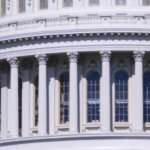Government Affairs Update: What We’re Working On
The AAA continues to press policy initiatives with Congress and the Administration that are important to our members. While not as high-profile as our successful efforts earlier this year on the five-year extension of the Medicare ambulance add-ons, the AAA is working hard on ambulance legislation and regulations that impact the EMS industry and ambulance services across the country. Here is a snapshot of those current efforts. Over the next month, we will be providing weekly in-depth updates highlighting these issues.
Ambulance Cost Data Collection System
The AAA was successful in getting our preferred language of an ambulance cost data collection system using a survey and random sample methodology included with the extension of the add-ons in the Bipartisan Budget Act of 2018. However, that was just the first key step in the process. We now need to ensure that CMS gets the details right as the agency develops the structural specifics and data elements for the system. It is critical that the system is designed in a way that ambulance service suppliers and providers will submit the most accurate data possible.
The data will ultimately provide the information necessary for Congress, the Centers for Medicare and Medicaid Services (CMS) as well as the AAA and other stakeholders to reform the Medicare ambulance fee schedule. Reform will include potential reimbursement for services such as community paramedicine, treat and refer, and other items that don’t involve transporting the patient. However, in order to determine the reimbursement levels, we first need the data on what it could cost for these additional services. The AAA therefore has been working closely with officials at CMS on the development of the data collection system.
Medicare Community Bill
The five-year extension of the add-ons and authorization of data cost collection system were the first steps needed in the long-term goal of reforming the Medicare ambulance fee schedule. The AAA is now developing the next piece of legislation as step two of the process. The “Community Bill” would make the Medicare ambulance add-ons permanent, treat ambulance service suppliers like providers in three specific instances, direct the Centers for Medicare and Medicaid Services (CMMI) to do additional pilot programs on innovative services being done by ambulance agencies, reduce regulatory burdens, and implement a more accurate definition of what Goldsmith Modification zip codes should remain as rural. The AAA is currently developing the draft bill and reaching out to congressional offices regarding the introduction of the bill which will likely occur early next Congress.
Restructuring of Dialysis Offset
The AAA is supporting the efforts of our members who would be significantly adversely affected by the upcoming reduction in dialysis transport reimbursement to restructure the cut. Congress included in the Bipartisan Budget Act of 2018 an offset to go along with the extension of the add-ons that will cut reimbursement for BLS nonemergency transports to and from dialysis centers by an additional 13%. This will be on top of the existing 10% reduction. The NEATSA Act (H.R.6269) by Congressman LaHood (R-IL) and Congresswoman Sewell (D-AL) would restructure the offset so that a majority of the additional reduction would be focused on those ambulance service agencies in which 50% or more of their volume are repetitive BLS nonemergency transports. The cut is currently scheduled to be implemented on October 1 and impacted AAA members and the AAA are working to get a Senate companion bill introduced shortly.
Rural EMS Grant Program
As an amendment to the Farm Bill (S. 3042) that passed the Senate, Senator Dick Durbin (D-IL) included language similar to the SIREN Act (S. 2830, H.R. 5429) to reauthorize the Rural EMS Grant program. However, in an effort to ensure the funding would go to the most needy, small, and rural EMS providers, the language of the amendment and SIREN Act would change the eligibility to just governmental and non-profit EMS agencies. Therefore, small rural for-profit ambulance service providers would no longer be eligible to apply for grants.
The AAA is pressing Senator Durbin as well as other members supportive of the reauthorization to revise the language to ensure small rural for-profit providers would still be able to apply for grants. In the next few weeks, the AAA will be asking AAA members to reach out to their members of Congress in support of the final Farm Bill including the reauthorization language and that it continues to also apply to for-profit providers as well.
Easing Regulatory Burdens
Over the last year, the AAA has responded to several requests for information from CMS as well as Congress on how to ease regulatory burdens for Medicare providers and suppliers. In addition to these broader opportunities, representatives of the AAA and our members have been meeting with CMS officials to reduce burdens for our industry. As a specific example, we are pushing for the elimination of the PCS for interfacility transports and to expand the categories of facility personnel eligible to sign the form.
Protecting Non-Emergency Ambulance Services
The AAA continues to educate members of Congress and congressional staff about the importance of non-emergency ambulance services. We are providing congressional offices with a clearer picture as to the vital role of these transports as part of the overall health care system. We are also looking to ensure that changes in federal payor policies strengthen the role and distinction of non-emergency ambulance transports from non-medical transportation services to health care facilities.
Zip Code Changes
The current use of Rural-Urban Commuting Areas (RUCA) as the basis of the Goldsmith Modification for determining rural areas in larger urban counties needs to be reformed. There are numerous examples of zip codes that are designated as urban under the Medicare ambulance fee schedule that are clearly rural. The AAA Rural Task Force is leading the way on both short-term and long-term efforts to more accurately capture rural zip codes in large urban counties. The AAA will include the ultimate reform provision crafted by the Task Force within the Community Bill as well as look at other legislative opportunities to make the changes.
Questions?: Contact Us
If you have questions about the legislation or regulatory initiatives being undertaken by the AAA, please do not hesitate to contact a member of the AAA Government Affairs Team.
Tristan North – Senior Vice President of Government Affairs
tnorth@ambulance.org | (703) 610-0216
Ruth Hazdovac – AAA Senior Manager of Federal Government Affairs
rhazdovac@ambulance.org | (703) 610-5821
Aidan Camas – Manager of State & Federal Government Affairs
acamas@ambulance.org | (703) 610-9039
Thank you for your continued membership and support.

